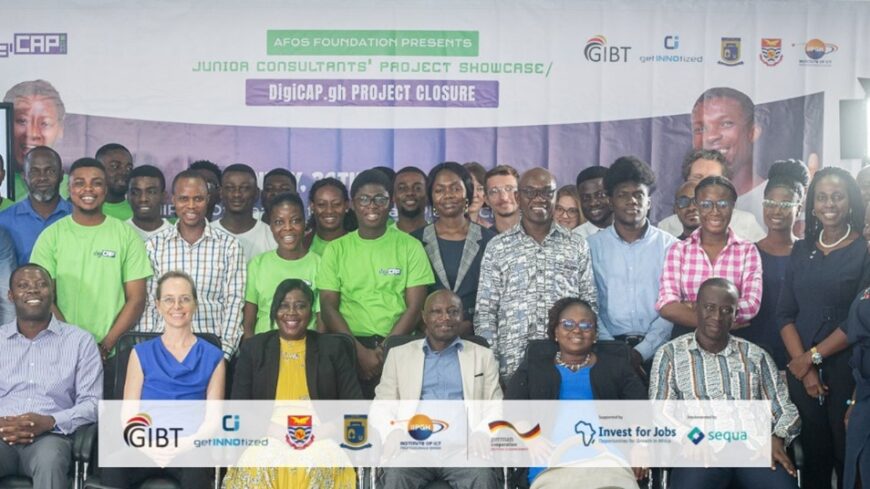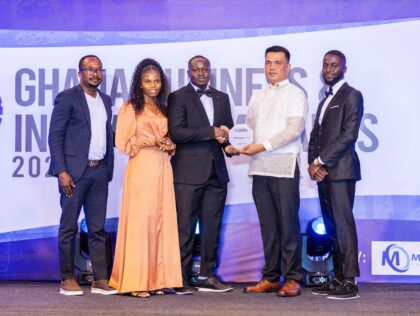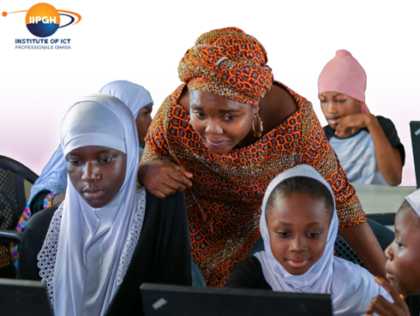The DigiCAP.GH project, spearheaded by AFOS Foundation and supported by the German Federal Ministry for Economic Cooperation and Development (BMZ) through Sequa gGmbH, ended after three years of impactful initiatives in the ICT space. The project closure took the form of the Tech Entrepreneurs Forum (TEF) and the Junior Consultants (JC) final presentations. Collaborating closely with the University of Cape Coast (UCC) and Accra Technical University (ATU), the DigiCAP.Gh initiative aimed to boost skill development, employability, and entrepreneurship. Through innovative programs like the JC initiative, DigiCAP.gh has revolutionized IT training, provided hands-on experience, and fostered entrepreneurship among Ghana’s tech enthusiasts, and students, thus bridging the gap between academia and industry demands.
The final event, held at the Institute of ICT Professionals, Ghana (IIPGH) on Monday, February 26th, 2024, was a gathering of creative and innovative individuals from the Accra Technical University, University of Cape Coast, getINNOtized, GIZ, and other business entities. The program highlighted the talents of the Junior Consultants who underwent rigorous training, demonstrating their creative ideas and problem-solving skills. The closure event reflected project outcomes and lessons learned.
In 2021, the Digicap initiative commenced its inaugural cohort at the University of Cape Coast (UCC). The program meticulously executed a participant selection process and conducted intensive skills training boot camps aimed at equipping individuals for the challenges ahead. Overcoming obstacles, stakeholders engaged in strategic meetings and planning sessions, which culminated in remarkable outcomes. Despite initial reservations, collaborative efforts with stakeholders drove the program’s success, leading to ongoing achievements as it approaches its closure in 2024.
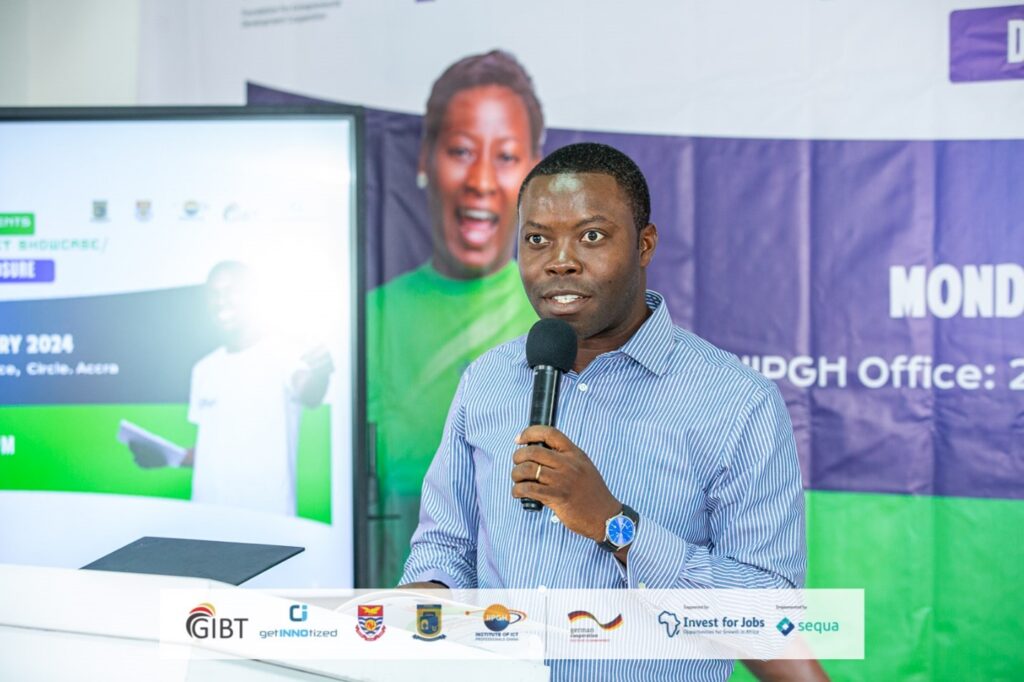
A warm welcome was given by David Gowu, Executive Director of IIPGH, as he recounted the journey spurred by unexpected partnership inquiries from Sequa and AFOS Foundation. Despite initial skepticism, the alignment of objectives led to fruitful collaborations. Despite the challenges they encountered, including a COVID-compelled pause, planning meetings ensued, culminating in a successful kickstart. The initiative garnered visibility and benefits, positioning the institute favorably. Overall, David Gowu expressed gratitude and extended a warm welcome to participants, emphasizing the institute’s dedication to professional development.
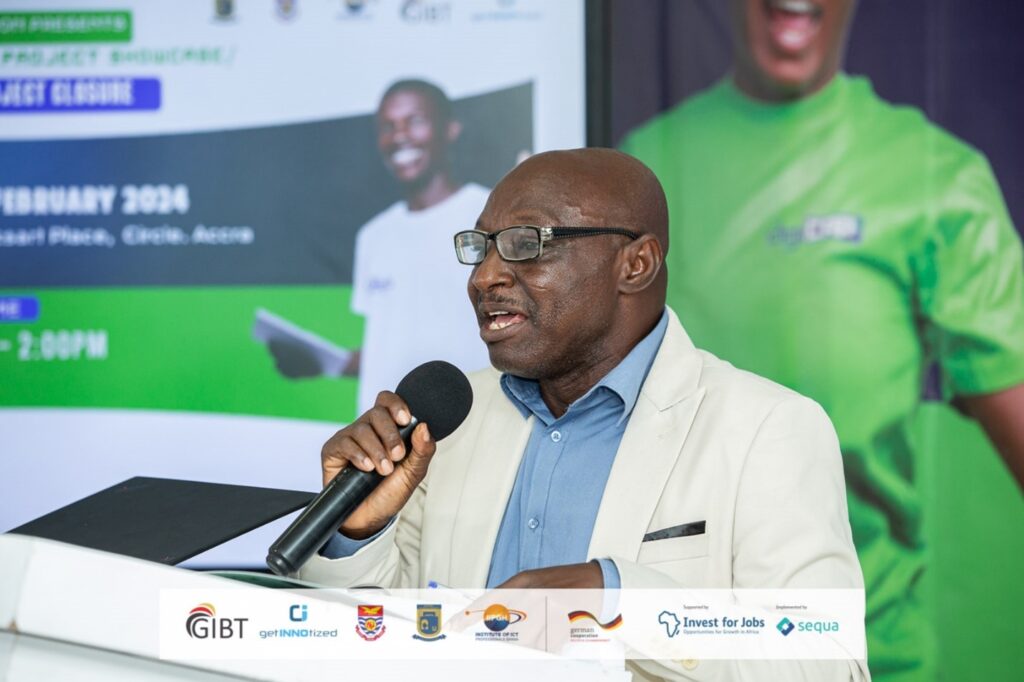
Representing Prof. Amevi Acakpovi, the Pro-VC of Accra Technical University, the director of business development, and the former acting Registrar of the university, effectively outlined how the presented project aligns with the institution’s strategic plan. He emphasized pillars such as enhancing student experience, impact-oriented research, internationalization, and community engagement. He underscored the pivotal role of ICT in achieving these objectives, stating, “Everything that we do is about enhancing students’ experience. If the students go through this program, they will be very innovative.” His address highlighted the strategic significance of the project within the university’s broader goals, demonstrating a proactive approach towards organizational advancement.
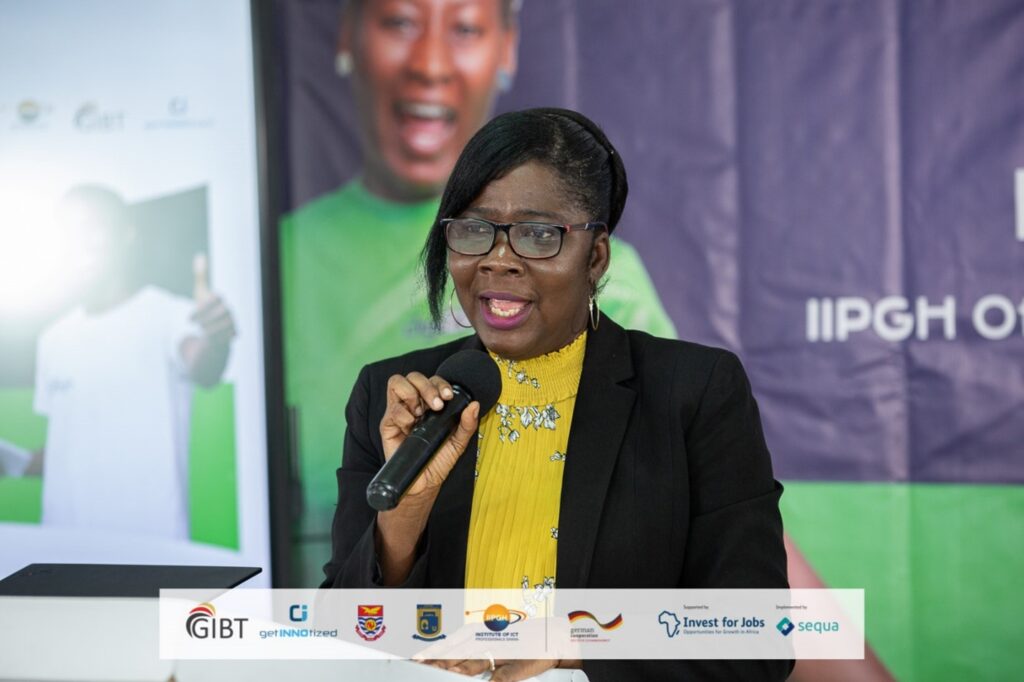
Pro Vice Chancellor of the University of Cape Coast, Prof. Rosemond Boohene traced the origins of the Digicap project to her academic leave in Germany. She stressed the criticality of ICT skills today, particularly Artificial Intelligence and Machine Learning, expressing their transformative impact on education. Her remark, “Now, I just tell ChatGPT to do this for me, and it does it for me,” highlighted the profound influence of technology in contemporary learning.
Prof. Boohene further emphasized the multifaceted approach of the project, incorporating business intelligence, data science, and junior consultancy, alongside soft skills development. She highlighted the importance of nurturing entrepreneurship not only for job creation but also for fostering innovation within organizations and communities. She reaffirmed the commitment to project sustainability, stating, “We want to make sure that we sustain this project, even if we don’t have funding.” Her closing remarks conveyed a sense of optimism for the project’s lasting impact on Ghana’s development, stating, “This is just the beginning…Ghana will have a generation that will be able to propel it into the development that we want our country to be.”
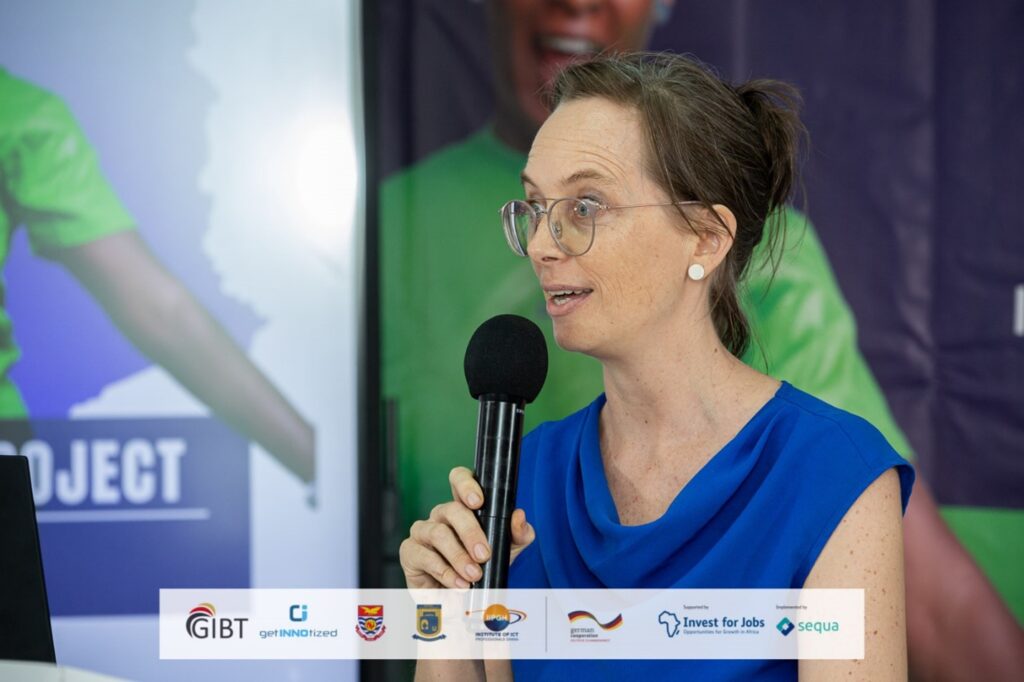
The Project Manager at AFOS Foundation, Hanna Schlingmann, reflected on the journey of the Digicap program, highlighting its challenges and successes. She emphasized the importance of adapting to obstacles, such as internet connectivity issues and finding innovative solutions. She praised the team’s ability to condense and compress information, stressing the significance of documentation and promotion. She underscored the project’s impact on networking between academia and industry, encouraging attendees to engage with new acquaintances.
In her closing remarks, Hanna expressed gratitude to all attendees for their significant contributions to the project’s success, particularly emphasizing the collaboration across organizations and departments. She then proceeded to discuss key performance indicators (KPIs), initially skeptical but later recognized their alignment with the project’s goals. Hanna engaged the audience by prompting them to recall the KPIs set at the project’s outset. One notable achievement was the offering of 588 students across Accra Technical University and the University of Cape Coast, exceeding the initial target of 400. Additionally, she highlighted the substantial female participation, surpassing the goal, with 162 out of the 588 students gaining employment as of 2024, of which 45 are females. She concluded by encouraging reflection on further KPI achievements and the project’s overall impact.
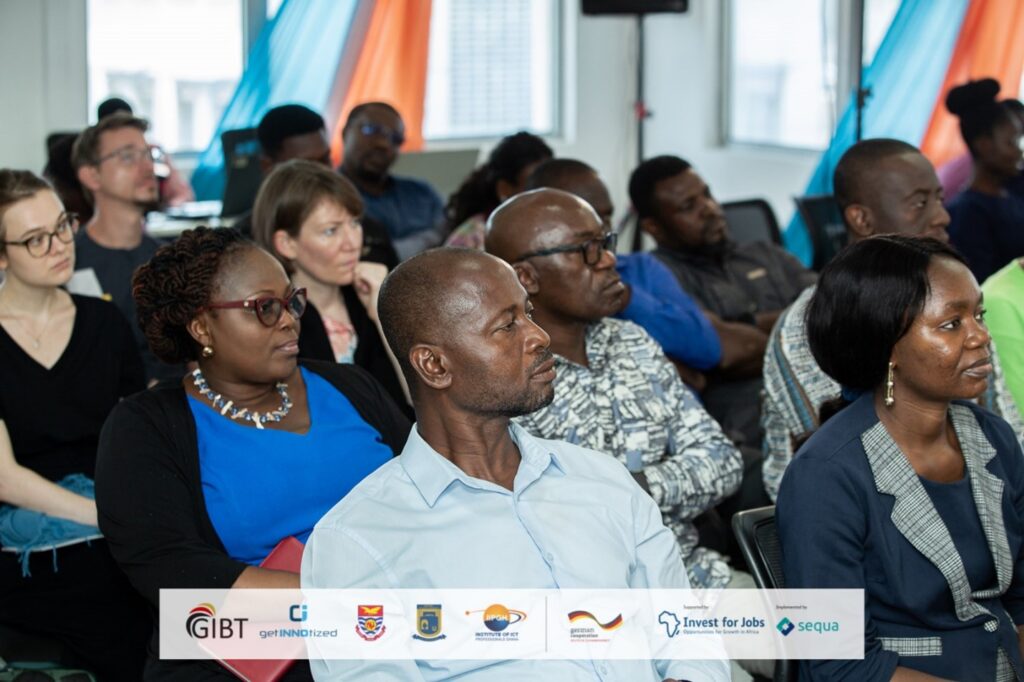
The digiCAP project focused on developing and managing practice-oriented ICT training programs and strategies to promote employment, focusing on data science, business intelligence, entrepreneurship, and career planning. The project, furthermore, prioritized expanding collaboration between educational institutions, businesses, and ICT stakeholders to enhance the
market competitiveness of companies in Ghana. The Digicap.gh initiative presented an avenue for career advancement through its exposure events and career services, which encompass peer career coach workshops and events like the Tech Job Fair, Industry-Academia Tech Dialogue (INDAC-TED), and the Tech Entrepreneurs Forum. These events facilitated a dynamic interface between companies seeking talent and graduates seeking job or internship opportunities.
By offering networking opportunities with industry leaders, these events aimed to empower students and graduates to secure valuable internships and job placements, thus propelling them towards a promising and gratifying professional journey. Simultaneously, companies or recruiters benefited from these platforms by identifying talents, streamlining recruitment processes, and reducing resource-intensive candidate searches.

The Digicap.gh project supported the universities in establishing and/or expanding career services that prepare students for the world of work through workshops and peer-to-peer training that offer professional development, career guidance, and personal growth. Overall, these exposure events were to bridge the gap between aspiring participants and employers, fostering a mutually beneficial relationship that bolsters the tech space.
By Kafui Amanfu, Director of Operations at the Institute of ICT Professionals Ghana.
For comments, contact richard.amanfu@iipgh.org / info@iipgh.org

